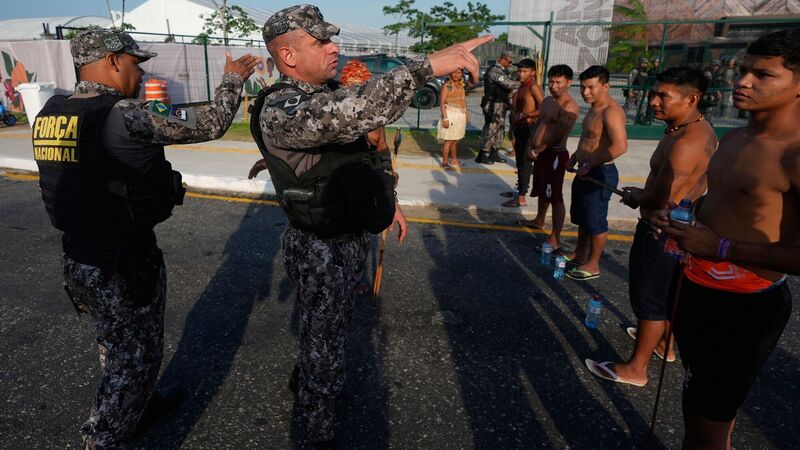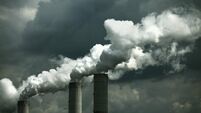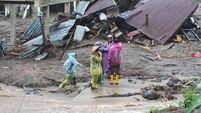Fossil fuel lobbyists outnumber all Cop30 delegations except Brazil, report says

Security personnel ask an Indigenous group for permission to enter a car outside the Cop30 venue on Friday. Permission was granted. Indigenous activists have blockaded the summit centre demanding that the Brazilian government halt all development projects in the Amazon, including mining, logging, oil drilling and the building of a new railway for transporting mining and agricultural products. Photo: AP/Fernando Llano
More than 1,600 fossil fuel lobbyists have been granted access to the Cop30 climate negotiations in Belém, significantly outnumbering every single country’s delegation apart from the host Brazil, new analysis has found.
One in every 25 participants at this year’s UN climate summit is a fossil fuel lobbyist, according to the analysis by the Kick Big Polluters Out (KBPO) coalition, raising serious questions about the corporate capture and credibility of the annual Cop negotiations.
CLIMATE & SUSTAINABILITY HUB













